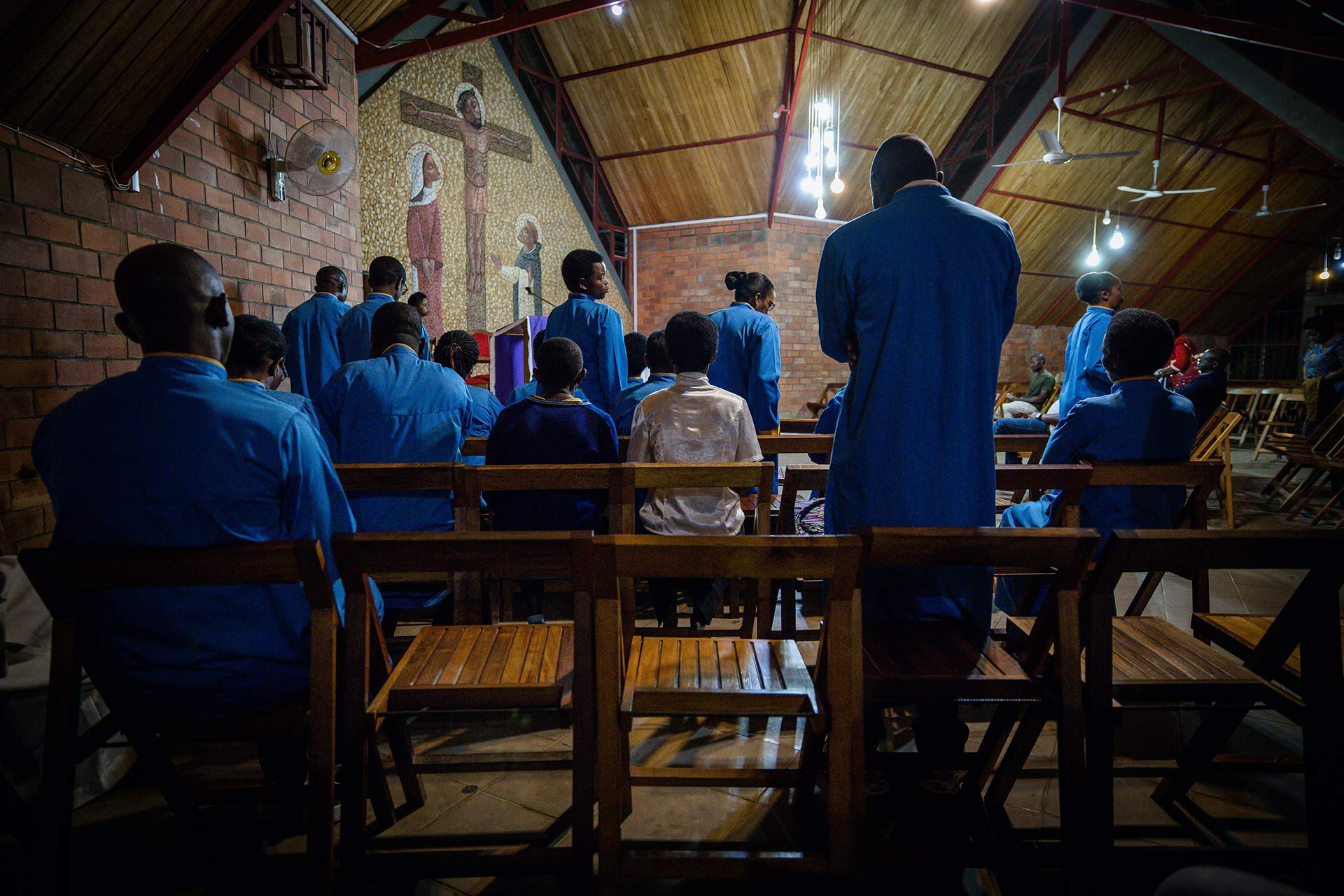What if religions listened to and learned from African theologians? Dr. Retief Müller, Director of the Nagel Institute for the Study of World Christianity at Calvin University, and Dr. Tite Tiénou, Research Professor at Trinity Evangelical Divinity School, are working with a diverse network of sub-grantees on fifteen projects in eight African countries in an effort to support African theological advance.
According to the Center for the Study of Global Christianity at Gordon-Conwell Theological Seminary, an estimated 26% of the world’s Christian population is living on the continent of Africa. View the Report >>
That makes Africa the most Christian continent on earth. And yet, Africa often remains under-resourced and under-represented when it comes to global conversations pertaining to the advancement of world Christianity. The Nagel Institute has devoted itself to the study of world Christianity, and is, more specifically, seeking to promote a deeper understanding of world Christianity, to partner with study centers to strengthen Christian intellectual movements in the global south and east, and to provoke a reorientation of thought in the North Atlantic region toward the concerns arising from world Christianity.
This project’s objectives are ambitious, but concrete – 3 years, 8 countries, 15 projects, $2.2 million, with 1 goal: African theological advance.
The Nagel Institute is supporting African Christian scholars, in theology and other disciplines, to engage in fresh research, thinking, and teaching about Christianity’s engagement with contemporary African society. This grant has been broken down into four distinct pillars of exploration.
African Spirituality and Values
Interest in African values percolates across the African church academy.
Science and Religion (Health and Healing)
At the intersection of science and faith, some of the most urgent questions that African Christians ask are about health and healing. Contemporary African Christians hear what appears to be competing claims from traditional healers, Christian faith healers, and medical professionals.
Religious Innovation and Competition
Religions constitute some of the most dynamic forces in Africa today, and researchers are trying to catch up with their numerical growth, proliferating forms, and cultural influence. Christianity in Africa is amazingly innovative, diverse and competitive. Christian theologians often view religious innovation and competition with dismay because of the potential for heresy, fragmentation, and strife. Even so, diversity and competition are often vehicles, if not drivers, of creative change.
Forgiveness, Peacemaking, and Reconciliation
As a major site for civil violence in recent decades, Africa has much at stake and much to offer for those who want to learn more about the barriers and pathways to forgiveness, peacemaking, and reconciliation. Political scientists, anthropologists, and psychologists are studying these issues in Africa, but what might theologians learn from them—and teach them—about the complex interactions of justice and mercy, restitution of wrongs, and accountability? Across the continent, Christian people and agencies are often leading in post-trauma counseling, community-based reconciliation initiatives, and peace education.
In just three years, this grant hopes to accomplish fifteen projects in eight African countries.
Overall, the notion that Africa is lagging behind is problematic, especially when we look at African Christianity. There is an immense amount of innovation going on; in fact, the Nagel Institute believes Africa is on the cutting edge of world Christianity in many ways.
Müller uses a metaphor of rain when describing Africa and African Christianity. A frequent prayer in Africa is a prayer for rain, which often go unfulfilled for long periods of time. But when the rain comes, it is a blessing. African Christianity experiences some of that in itself as well; it is a blessing to Africa, but also to the wider world. Africa is increasingly influencing the wider world in all kinds of ways, but especially within the religious realm, sharing the blessing of rain with the West and beyond.
All of this learning is in hopes to strengthen religious networks through the righteous goal of African theologians learning from other African theologians and the world learning from African theologians.

